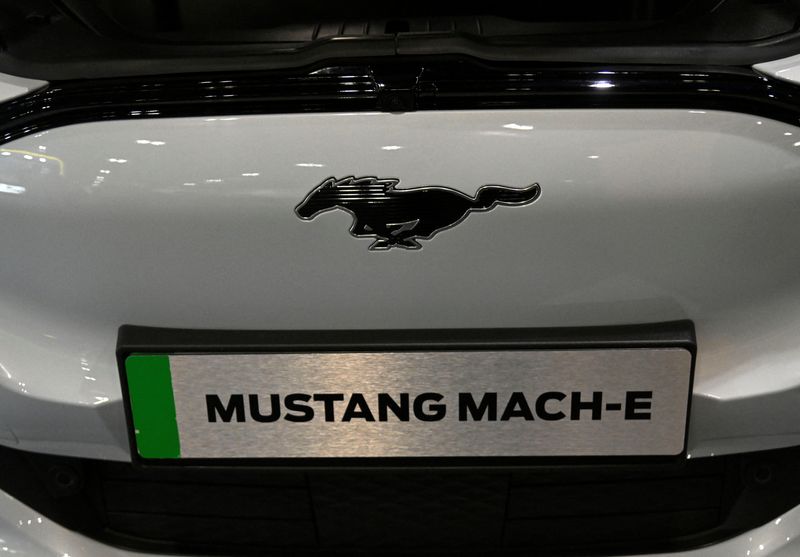By David Shepardson
WASHINGTON (Reuters) -U.S. safety investigators said on Thursday a Ford (NYSE:F) Mustang Mach-E was using an advanced driver assistance system when it struck the rear of a stationary Honda (NYSE:HMC) CR-V on Interstate Highway 10 in San Antonio, Texas in a Feb. 24 crash.
The National Transportation Safety Board said the Ford had "BlueCruise" in use. Based on data from the vehicle, the Ford driver had been operating in BlueCruise mode before the crash that killed the 56-year-old Honda driver, the NTSB said.
A San Antonio police report said previously the Ford had "partial automation" engaged at the time of the crash.
Both the NTSB and the National Highway Traffic Safety Administration (NHTSA) are investigating the San Antonio crash and are also investigating a March 3 crash in Philadelphia involving a Ford Mach-E where an advanced driver assistance system is suspected of use.
Ford offers BlueCruise, an advanced hands-free driving system that operates on 97% of U.S. and Canadian highways with no intersections or traffic signals.
The NTSB said a witness traveling in front of the Ford reported she encountered the stopped Honda without tail or hazard lights illuminated. She changed lanes to avoid striking the vehicle and later, in her rearview mirror, saw another vehicle strike the stopped Honda.
On Thursday, NHTSA it is investigating a March 3 fatal crash between a Ford Mustang Mach-E and two stationary cars in Philadelphia in which an advanced driver assistance system may have been in use. In that crash, the Ford struck two stationary vehicles on the I-95 interstate highway, killing two people and halting traffic for hours.
The NTSB said Wednesday it is investigating that crash in coordination with the Pennsylvania State Police, which declined to comment.
Ford said it was recently made aware of the Philadelphia crash by the NTSB and informed NHTSA, which requires automakers to report all fatal crashes involving advanced driver assistance systems.
"We are researching the events of March 3 and collaborating fully with both agencies to understand the facts," Ford said.
NHTSA has opened special crash investigations into the two recent Ford crashes. The agency typically opens more than 100 special crash investigations annually into emerging technologies and other potential auto safety issues.
In December, electric car maker Tesla (NASDAQ:TSLA) agreed to recall 2 million vehicles to install new safeguards for its Autopilot driver assistance system.

The NTSB has opened several investigations in recent years into Tesla Autopilot and other such systems.
Since 2016, NHTSA has opened more 40 Tesla special crash investigations in cases where driver systems were suspected of being used, with 23 crash deaths reported to date.